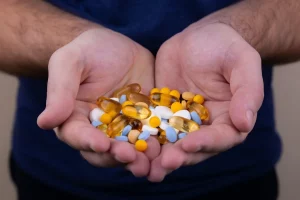
As the cost of health care continues to rise, prescription drugs are becoming increasingly unaffordable for many Americans. Even under the best circumstances, insurance plans typically limit how much consumers can spend out-of-pocket on their prescriptions each year. The result is that patients end up paying more than they should for critical medications.
The good news is you don’t have to accept the high cost of prescription drugs—there are several ways you can get help:
Save Money On Your Prescription
Let’s face it – discussing health care prices is not at the top of most people’s priority list. However, with patients being liable for a more significant portion of their out-of-pocket costs, it’s critical to examine the value of treatments. Here are some tips for saving money on prescriptions.
Ask For Generic
While not all medications are accessible in generic form, those with the same active components and therapeutic benefits as brand-name medications can cost between 30% and 80% less.
Do not wait until you reach the pharmacy to request a generic — inform your doctor or other healthcare practitioners before writing the prescription. Numerous popular but formerly prohibitively expensive medications are now available generically or over-the-counter (OTC); prioritize obtaining these cost-effective alternatives.
Use Your Insurance
If you are paying for health insurance, then you better get the most out of it. Call your insurance company and ask if they can cover the prescription or medications you currently need to take. The list of drugs that an insurance plan can cover is called a formulary, and it also provides guidelines on splitting the cost between you and the insurer.
Since each insurance company is different and has medicines they do and do not cover, the abovementioned action is highly suggested. Doing so will save you time and effort in knowing which of your medications can be covered through the insurance benefits.
By using your health insurance to cover your medication expenses, you will be able to rest your mind while recovering from your illness. It will lift a heavy mental and physical load since you do not need to worry about your ongoing medical expenses.
Do A Medication Review
When patients receive several drugs from multiple prescribers, the likelihood of at least one of those medications being inappropriate increases, this can result in polypharmacy, which is more prevalent in older individuals and those with many concomitant diseases.
While polypharmacy has negative health consequences for patients, pharmacists should emphasize how quitting an unnecessary medicine might help patients save money on their prescription drug costs overall.
To accomplish this, pharmacists should ascertain the whole list of medications taken by a patient by getting an accurate medication and medical history. The pharmacist can then associate each given medicine with a specific illness state and undertake interventions with the patient’s prescribing physician to cease treatments considered ineffective.
Look For Patient Assistance Program
Patient support programs help patients who cannot afford their medication obtain it for free or at reduced cost.
Numerous pharmaceutical companies publish information about their patient support programs on their websites. They may also give copay vouchers at a reduced or no cost for some drugs.
Additionally, you can visit websites that provide an exhaustive list of options that support low-income families. One of the examples is the BuzzRX Discount Card which can be used in certain prescriptions.
Ask For Free Prescription Samples
Consider contacting your physician to inquire about free samples of your prescription drugs. Doctors often have full-size samples to share, particularly with maintenance medications like asthma inhalers or blood pressure medications.
These may be brand-name products for which a generic is not yet available; thus, check with your doctor to see if you will be able to substitute a generic when necessary. If not, you may be forced to pay the total price for a costly brand-name medication once your sample runs out. Avoid paying for an expensive brand-name medication if a generic equivalent is available. If you are unsure, see your physician or pharmacist.
Discount Coupons Are A Must
Look for online (but reputable) coupon codes and discount cards that will help you save money on your specific medication; these usually work when purchasing with cash. Take the discount code or card to the pharmacist (or show it to the pharmacist on your phone), and they can generally enter the code for you. Some pharmacies are becoming more receptive to these discount cards, but not all. So you might want to call ahead of time.
Bear in mind that some pharmacies may refuse to respect discount codes for prohibited medicines such as opioid pain pills or anti-anxiety meds. If you discover that the cost of a prescription is simply unaffordable, ask your pharmacist to contact your doctor to determine a less expensive option. In most cases, a comparable but less expensive drug might be recommended for your illness.
Finally, consider requesting a discount from the pharmacy counter. Many chain pharmacies offer in-house prescription savings, albeit requiring a nominal fee.
Purchase Only Trustworthy And Reliable Prescriptions
While purchasing prescriptions from other nations or questionable websites on the Internet may seem like a tempting method to save money on pharmaceuticals, do not do so. Instead, what you may save in terms of money may come at a cost to your health.
According to the United States Food and Drug Administration (FDA), “the FDA has not evaluated the safety and effectiveness of imported medications, and their identity and potency cannot be guaranteed.” For example, you may receive incorrect medication, incorrect strength, counterfeit medications, or even obsolete, expired medications. BeSafeRx, a service provided by the FDA, can assist you in identifying and avoiding fraudulent online pharmacies.
Final Thoughts
There are numerous ways to save money on prescription medications. You only need to be prudent and astute in order to discover solutions that may help you save money. Do inquire about discounts from your pharmacist or physician, and do your research to determine if there is a more cost-effective alternative.




















